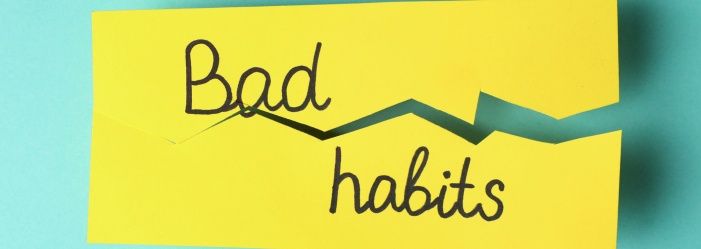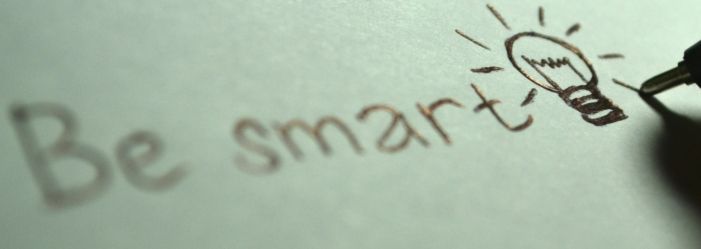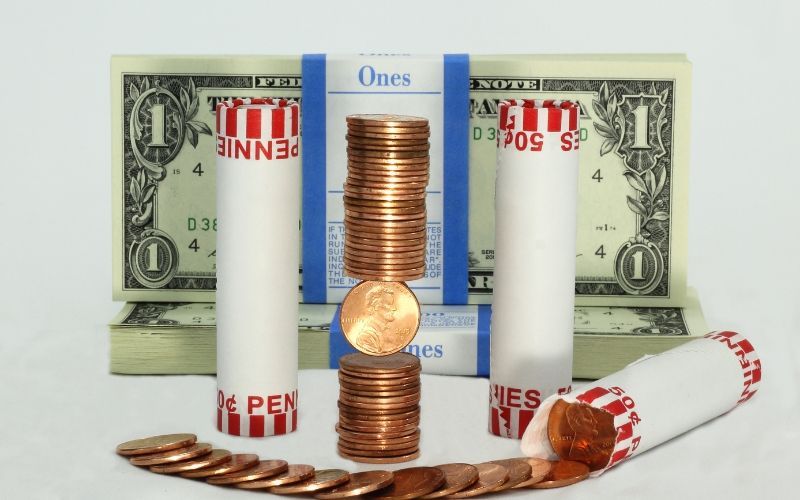Last Updated: October 18, 2023
Wake-Up Call You Need to Break Bad Habits

You know all of the compelling health reasons to quit smoking, drinking, or overeating, but somehow always manage to put it off “until next month” or “after the holidays.” In fact, if you’re like most people, you always have a reason to postpone taking a positive step toward improving your health. Instead of procrastinating, why not take a dollars-and-cents approach to cutting back? You’ll see immediate financial rewards which can be more motivating than you may think. By looking at your bad habits from a financial viewpoint, you’ll soon have more money in the bank – and improved health!
First, take an honest look at your bad habits. Whether it’s smoking, drinking, overeating, impulse buying, or anything else that adversely affects any part of your life, honestly appraise the behavior. Take a piece of paper and quantify the cost of the bad habit in terms of dollars and cents as well as its impact on your life. To avoid common money mistakes, check out this guide on how to avoid them.
Take an Honest Look at Your Habits
For example, if you drink two cases worth of beer per week at $18 per case, you’ll have several considerations including cost ($144 per month and $1872 per year), weight gain, family problems, and other alcohol-related concerns such as driving restrictions, long term liver damage, and even hangovers. By giving up your beer habit, you’d save nearly $2000 per year, with an immediate payoff of $144 in your pocket within the first month.
In addition, in this example, you could even lose about a pound and a half per week without dieting or starting an exercise regime. That’s assuming an average of 100 calories per beer. Less drinking also means less conflict and improved health. No matter which habit you’re trying to kick, look at the financial costs involved as a motivating factor. Developing a comprehensive financial plan can help you establish saving and spending priorities.
You’ll be surprised at how quickly those $5 daily lattes and $12 restaurant lunches add up. For instance, if you drink a $5 latte each day at work, you spend $25 per week, $100 per month, and $1300 per year on this indulgence. Likewise, if you eat out during the workweek and spend about $12 each time, you spend $60 per week, $240 per month, and $3120 per year on calorie-heavy lunches. For more strategies on curbing spending and enhancing savings, discover our 25 Tips to Save Money More Effectively.
These are just the obvious costs. Smokers pay for cigarettes but are also charged higher insurance premiums. In addition, when it’s time to sell a car or house, smokers may have to pay to have their cars professionally detailed or replace carpets and draperies in the home whereas non-smokers may not.
Commit to Change
Next, commit to kicking your habit one month at a time. It’s commonly cited that it takes about 27 days to break a habit, or just under one month. If you have several costly habits, don’t try to kick them all at once. Pick one to start with. Once you’ve successfully gone an entire month and feel as though the habit is in the past, move on to the next one.
Let’s say that you want to give up your $5 lattes in month one and then cut back on your alcohol consumption in month two. Buy a calendar and a set of beautiful stickers and use them to track your progress. Write your monthly goal across the top of the calendar in large bold text so that you see it every day. This written reminder will help reinforce the habit that you are attempting to break while holding you accountable at the same time.
Post the calendar in a prominent place where others can see it, too. This shows others what you are accomplishing and may even encourage support or inspire others. While you’re at it, write yourself a check for the amount of money you would have spent or put that money in a piggy bank. By the end of the first 27 days, you may not even realize that it’s time to go out for coffee as your habit could very well be in your past!
Don’t let a relapse get you down or derail your efforts. If you break down one day, consider it a mistake and move on, making sure not to relapse the next day. If you find yourself falling back too often, consider professional help, especially if you’re addicted to nicotine, alcohol, or drugs.
Create a Budget
One of the best ways to curb bad money habits is to create a budget. A budget allows you to see exactly where your money is going each month. Use budgeting apps or spreadsheets to categorize your expenses and get a bird’s-eye view of your spending.
Building small rewards into your budget can help reinforce good habits. For example, include a “fun money” category in your budget for things like dining out or entertainment. Sticking to the limits you set will keep these treats from turning into bad habits.
Automating parts of your budget, like savings transfers and bill payments, takes temptation and effort out of the equation. Envelope budgeting is one approach that can make budgeting feel more tangible.
Adjust Your Mindset
In addition to the dollars and cents, adjusting your mindset is key to changing habits. Try thinking of costs in terms of the hours you worked to earn that money rather than the dollar amounts. Or focus on long-term goals rather than short-term gratification. This shift in thinking helps reinforce good habits.
Reduce Temptations

Limiting exposure to temptations can go a long way in helping break bad money habits. Unsubscribe from promotional emails, avoid walking down the impulse buy aisles at the store, and keep your credit cards tucked away to reduce temptation spending.
Replace bad habits with good ones. When you have the urge to shop online or buy yourself a treat, call a friend or family member instead.
Seek Support
For some severe addictions or stubborn bad habits, professional help may be needed. Counseling, debt management programs, therapy, and other assistance are available. Make sure any organization you work with is accredited. Your local Consumer Credit Counseling Service office can provide reputable referrals.
Automate Good Habits
Once you’ve kicked a bad habit, automate positive behaviors to prevent backsliding. Set up automatic monthly transfers from checking to savings accounts and investment accounts. Use bill pay through your bank to pay bills on time. Automating good habits takes the effort out of making responsible money choices.
Be Patient with Yourself
At the end of the first month, total up your savings and congratulate yourself on a job well done. Your job is not over yet as this is a month-to-month bad habit-cutting plan. Continue with your first bad habit and move on to the next one.
If you stick with this dollars and cents approach, you'll find that kicking your bad habits makes financial sense. Best of all, you'll find that this strategy yields many dividends including better health and improved relationships.
Share Your Journey
Share your experience and results with family and friends. Doing so provides support and encouragement. It also raises awareness of responsible money management. Consult a financial professional to help prepare you for the future.
FAQs
Conclusion
Breaking bad money habits requires reshaping both your financial behaviors and your thinking around money. By calculating the real cost of your habits, prioritizing your goals, creating a realistic budget, shifting your mindset, and seeking support when needed, you can take control of your finances.
With some determination and the right strategies, you have the power to overcome even longtime bad habits. The financial and personal benefits you’ll reap make it more than worthwhile. Approaching change one month at a time and rewarding your progress gives you positive reinforcement along the way.
While bad habits can seriously impact your money situation, they don’t have to keep you from achieving your dreams. By kicking your habits for good, you can live a financially healthy life with room for occasional treats and indulgences on your own terms. The steps you take today put you firmly on the road to financial freedom.
If you are struggling with overwhelming debt and want to explore your debt relief options, Pacific Debt Relief offers a free consultation to assess your financial situation. Our debt specialists can provide objective guidance relevant information and support to help find the right debt relief solution.
For more information and to learn more about Personal Finance Tips please visit our
Personal Finance Page
✔ Accredited by Better Business Bureau with BBB A+ rating (4.93 rating and 1678 reviews)
✔ US News and World Reports and Bankrate ranked Pacific Debt Relief as one of “The Best Debt Relief Companies of 2024”
✔ 6.9 star rating by BestCompany.com (over 2379 client reviews)
✔ 4.8 star rating by TrustPilot based (over 1613 verified consumer reviews)
✔ ConsumerAffairs.com Accredited (over 544 verified reviews with an average rating of 5 stars)
✔ A Top 10 Rated Compan by TopTenReviews.com , ConsumersAdvocate.com and Top10debtconsolidation.com
✔ 4.6 star rating by Google (229 client reviews)
✔ 100% rating by SuperMoney (9 client reviews)
Reduce Your Credit Card Debt By Up to Half

BBB Reviews | 4.9/5.0 Rating









 Do Not Sell My Personal Information
Do Not Sell My Personal Information